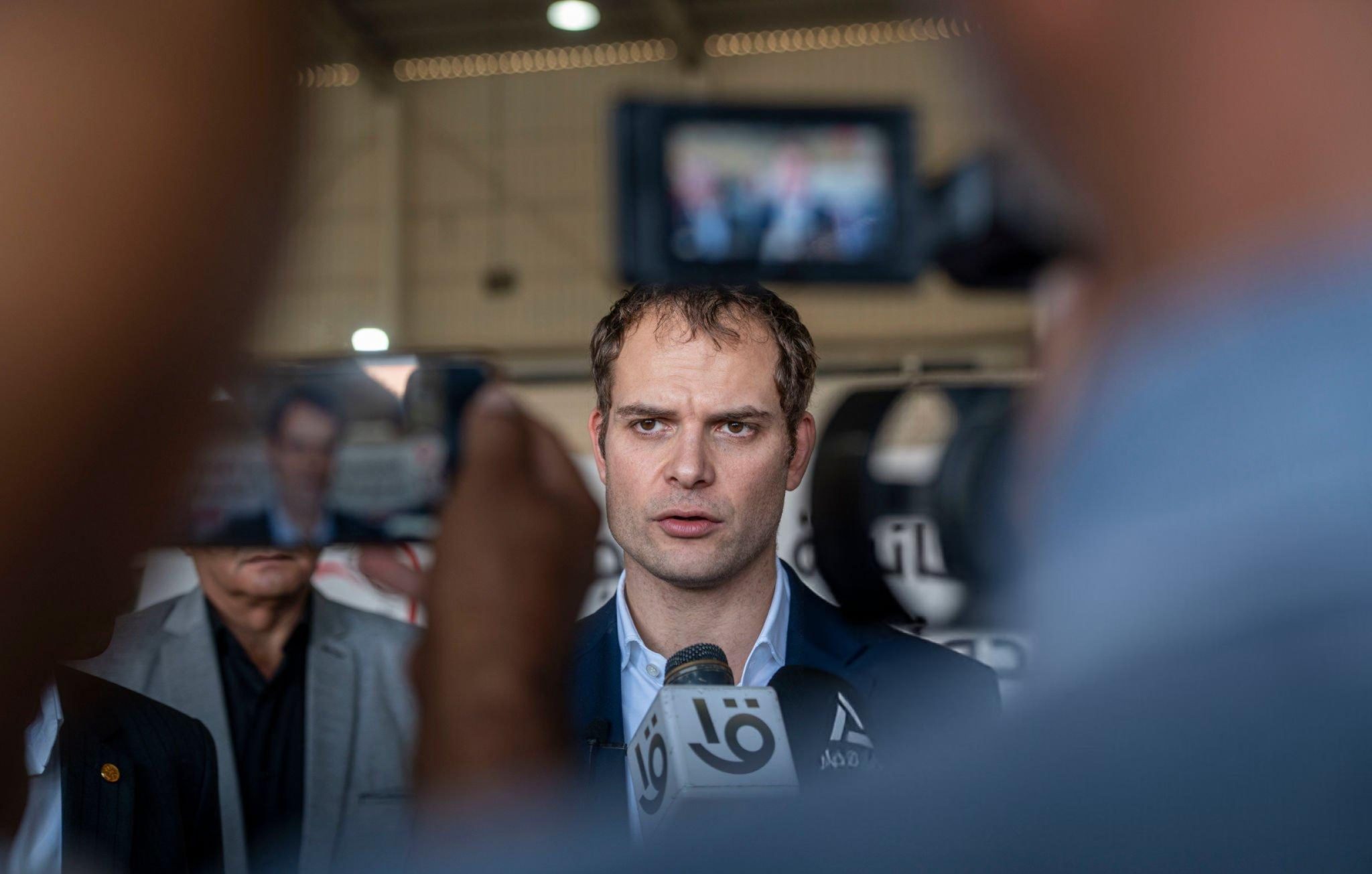Two British diplomats were among a group of around 20 international representatives who came under fire during a visit to the West Bank city of Jenin, prompting a strong rebuke from the UK Government. The incident, involving warning shots fired by the Israel Defence Forces (IDF), has been labelled “unacceptable” by Foreign Office Minister Hamish Falconer.
The diplomats, who were reportedly accompanied by colleagues from Ireland and other countries, were visiting Jenin on Wednesday when gunfire erupted. Footage from the scene shows diplomats scrambling for cover as shots rang out nearby. Thankfully, no one was injured, and both British diplomats were later confirmed safe.
Minister Falconer said he had spoken directly with those affected, condemning the situation and calling for a full investigation.
“Civilians must always be protected, and diplomats allowed to do their jobs,” he said. “There must be a full investigation, and those responsible should be held accountable.”
The IDF claimed the delegation had strayed from an “approved route”, prompting soldiers to fire warning shots to drive them away. The Israeli military later issued an apology and pledged to contact all countries whose officials were present to explain the situation.
Ireland’s Deputy Prime Minister and Foreign Affairs Minister Simon Harris also condemned the event “in the strongest terms”.
The alarming encounter comes amid escalating diplomatic tensions between the UK and Israel. Just a day prior, Britain announced it was halting talks on a trade deal with Israel and had summoned the Israeli ambassador to express deep dissatisfaction over the worsening humanitarian situation in Gaza.
Adding to the pressure, the UK Government has issued sanctions against several Israeli settlers accused of fomenting violence in the occupied Palestinian territories. These sanctions include financial restrictions and travel bans on individuals such as settler leader Daniella Weiss, alongside two illegal outposts and two organisations accused of supporting aggression against Palestinians.
Minister for Development Jenny Chapman, currently on a visit to Israel and the occupied territories, announced an additional £4 million in UK aid to Gaza, comprising essential medicines, food parcels, and safe drinking water. However, she expressed deep frustration at Israel’s continued blockade, which has hampered efforts to get vital supplies into the region.
“The lack of aid reaching ordinary Gazans is appalling,” said Ms Chapman during a visit to a Red Crescent centre. “The Israeli government’s failure to allow full humanitarian access is abhorrent. Far too few trucks are crossing into Gaza.”
Ms Chapman stressed the urgency of action, echoing warnings from the UN that nearly half a million Palestinians, including many children, are facing the threat of starvation.
“The UK is clear – Israel will not achieve security through prolonging the suffering of the Palestinian people,” she said. “We need to see an immediate ceasefire, the release of all hostages, a surge of aid, and a path towards long-term peace.”
Labour leader Sir Keir Starmer added his voice to the growing chorus, stating that humanitarian aid must reach Gaza “at pace” during a visit to north London on Tuesday.
In response to developments in the West Bank and Gaza, Foreign Secretary David Lammy announced targeted measures aimed at individuals and organisations implicated in settler violence.
Meanwhile, Downing Street has not ruled out extending sanctions to members of Prime Minister Benjamin Netanyahu’s government. Though officials declined to confirm specific names, they indicated that “concrete actions” would follow if Israel does not curb its military operations and lift aid restrictions.
“We have made it clear,” said the Prime Minister’s spokesman. “If Israel does not act, we will.”
As the international community watches closely, Wednesday’s incident in Jenin highlights the increasingly fraught relationship between Britain and Israel, and raises further questions about the safety of diplomatic missions in conflict zones.






